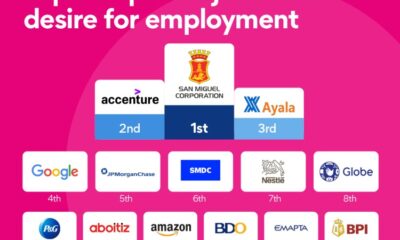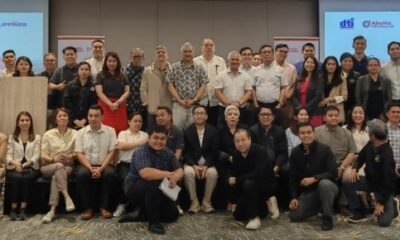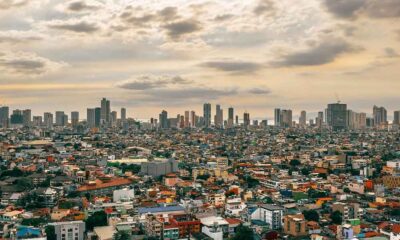Business
FMIC Sees Economy Contracting 8-9% in 2020, Recovery by 2021
First Metro Investment Corporation, the investment banking arm of the Metrobank Group, expects the Philippine economy to contract by eight to nine percent by year-end due to the pandemic, but will bounce back in 2021 and the long-term prospects look rosy on the back of strong macroeconomic fundamentals.
During the virtual FMIC economic and capital markets briefing Wednesday, University of Asia and the Pacific (UA&P) economist Dr. Victor Abola said he does not see an economic recovery this year, as people focus more on the number of coronavirus disease 2019 (Covid-19) cases even as death rate remains low and bulk of the cases are mild.
He said the achievement of positive growth in the fourth quarter this year still depends on “how firms and people respond to the opening up of the economy”.
Abola said the speed of economic recovery hinges on conquering coronavirus fears and firms revising business models and responding to the digitalization challenge amid the pandemic.
“But I expect a more serious recovery come 2021,” he added.
The country’s gross domestic product (GDP) declined at a record pace of 16.5 percent in the second quarter of 2020, bringing first-semester contraction by nine percent.
With the two consecutive quarters of economic decline, the inter-agency Development Budget Coordination Committee (DBCC) has revised downward this year’s growth figure to -5.5 percent from previous -2.0 to -3.4 percent.
During the same briefing, UA&P economist Dr. Bernardo Villegas said economic growth prospects in the next 12 to 18 months will be “pure guesses because everything depends on Covid-19.”
“Are we going to have a second, third, fourth wave? No one knows and when is the vaccine going to be ready,” he said.
Villegas thus underscored the need to focus on the strengths of the economy to help it grow amid the pandemic.
He said these sunrise industries include food and agriculture business, health and wellness, and digital sector comprising computers and smartphones,
“Meaning products and services belonging to the so-called Industrial Revolution (or Industry) 4.0 will definitely be leading in the (economic) rebound. In fact, when you talk about a V-shape recovery, we cannot talk about the whole economy, we have to talk about individual sectors.” he added.
Villegas further said he was optimistic about the Philippines becoming an upper middle-income country still in three to four years.
“I think that by 2023, we will resume our 6 to 7-percent growth and attain the 4,000 US dollars per capita that we were supposed to attain this year and by that time, we will be an upper middle income (society),” he said.
Villegas said the Philippines is about to achieve an upper middle-income status this year “but did not happen because of the pandemic.” (PNA)

































